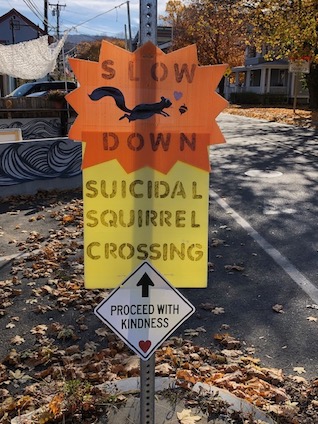This novel was an easy one to get started. Afterall, Following the Lead, No. 6 in my Isabel Long Mystery Series that has a Nov. 3 release, starts minutes after No. 5, Working the Beat. I am not going be a spoilsport and reveal how that one ends. But I will say Isabel and her mother, Maria aka her “Watson” are on their way back home with an envelope filled with papers in the back seat.
I will give you more about that in a bit, but I wanted to talk about beginning a novel or at least, how it works for me. Without sounding like a total nut, they just come to me when I sit down at my desk. Later, while I may change a word here and there, I’ve kept each one.
My aim is to catch up readers (without giving away stuff to those who haven’t read the previous book/books) and get them into the action of the next one. I know what I like to read and hope to provide that experience to readers of this series.
In Chasing the Case, the first, Isabel is in her back yard digging a grave for a beloved pet cat while it is snowing. As she puts that shovel into the ground, she reflects on the past year, which I use to let readers know where she’s at. Isabel’s a recent widow. She lost her job running a newspaper and her 92-year-old mother has come to live with her. But as importantly, we learn that she wants to investigate on her own a 28-year-old mystery in her small town — and her first big story as a rookie reporter.
(By the way, this book got rejected by a publisher because I was told that I broke a cardinal rule that you don’t kill off pets in books. I wrote back that writers are supposed to break rules.)
In the second, Redneck’s Revenge, Isabel meets Lin Pierce, who will be her boss of sorts. Isabel found out she just can’t investigate crimes on her own. Right away, she takes on her first legitimate case: Annette Waters, a junkyard owner, hires her to investigate the death of her father who supposedly was too drunk to get out of his shack of a home when it caught fire.
In Checking the Traps, the third, Isabel is tending bar at the Rooster with one arm after she was hurt when her car was run off the road in the previous case. Lots of questions from the customers, and then she gets a call from Gary Beaumont, a suspect in her last case who wants to hire her.
In Killing the Story, the fourth, Isabel attends a funeral for the town’s police chief, but the next day she’s at a pig roast at the Pit Stop convenience store when she is approached by the editor/co-owner of a small town newspaper. He believes the death of his mother, who had the position before him, wasn’t accidental. Of course, with her background, it was an easy sell for Isabel.
In Working the Beat, the fifth, Isabel is losing badly at poker with Jack, the owner of the Rooster, during a dead night at the bar. Everybody is at the Titus Country Fair. The next day she’s there with her mother when she is approached by an old woman, whose beloved grandson was found dead after the demolition derby four years ago.
So what about the sixth, Following the Lead? Here is the very beginning.
Lin Pierce said not to open the envelope he gave me until I get home, but since when do I listen to what my old bosses tell me? I bet he said it only as a test, a tease, or knowing Lin, a joke. The manila envelope’s contents have been on my mind since he handed it to me in his office and said, “It’s your next case.” And there it sits on the back seat of my car, bugging the heck out of me to stop and rip it open. Thanks a lot, Lin.
“Do you think it’s another unsolved murder?” my mother asks after she gives the fat envelope another glance.
My mother and I are on our way home after I stopped to see Lin at his office. I shipped her to my brother’s home when things got a little bit scary with the last case, but now she’s back, and it appears ready for the next one.
“No clue,” I answer.
Ha, my mother, who you may know as my partner in crime, that is solving them, is as nosy as I am. When I was a kid, she kept a close eye and ear on the neighborhood where I grew up in the eastern part of this state. In those days, the town would broadcast the location of a fire by a series of loud horns, and my mother would look them up in a booklet she kept on a table beside her comfy chair. She would announce the street and number where the fire was happening, although one summer when the call was for a business several streets away from our home, we walked there in the middle of the night to watch. The only difference between my mother and me, regarding nosiness, is that I turned it into a profession, journalism. As a reporter, then editor, being nosy is a job requirement. Now I use that trait as a private investigator solving cold cases in the hilltowns of Western Massachusetts where we live. So far, I’ve solved five, and now it appears I will be moving onto number six sooner than I expected.
“You looked really excited when you left Lin’s office,” my mother says.
“Uh-huh. Lin wouldn’t give me a case that isn’t worth pursuing. He knows better than that.”
Ma checks over her shoulder again.
“I guess we’ll find out soon enough.”
Hmm, not soon enough in my mind.
My mother and I have been talking about what could be inside that envelope ever since we left Lin’s empty office in Jefferson. He’s officially out of the private investigation business now that he’s sold it to Bob Montgomery, the retired state cop who’s still interested in solving crimes. Once a cop, always a cop although as a private investigator, he can’t arrest people or shoot them. Lin, who I would rightly describe as a bit of a fuddy-duddy, isn’t what comes to mind when I think of a P.I., certainly not the ones I’ve seen in movies and TV shows or read about in novels. He didn’t solve crimes but took insurance cases, usually on behalf of the company trying to disprove one. It wasn’t until I came on board earlier this year that he ventured into crime. Actually, I did the criminal part. I earned a buck a day and he got a cut of what I made from my client, including the case where I was paid free mechanical service for my vehicles for life. Lin does, too. That was the deal I made with Annette Waters aka the Tough Cookie when I investigated her father’s death in case number two.
From now on, I will get two bucks a day from Bob Montgomery. His stipulation for buying the business was that I come with it. No, I’m not an indentured servant, but Bob likes the zip I added to Lin’s business. Certainly, my solving those mysteries gave Lin’s business some badly needed publicity after my cases were written up in the local newspapers and even covered by a couple of TV stations. As for me, Bob’s offer is likely the best and only one I could get to continue what I love doing. I didn’t bother applying to other private investigation firms since I need an arrangement that doesn’t take me away from my mother, who is ninety-three. Besides, I want to investigate cases that interest me and I sure as heck don’t want to work full time because I plan to keep my part-time gig tending bar at the Rooster on Friday nights.
I tip my head toward the back seat.
“He said it was an old case. Maybe it was before he started doing business with those insurance companies.”
“Could be something personal, Isabel.”
“Now that would be interesting.”
HOW TO GET FOLLOWING THE LEAD: The official release is Nov. 3 for Kindle on Amazon, but pre-ordering — and thank you if you have done that — is appreciated. Pre-order now and the book will magically appear in your device on that day. I will be frank that selling books that one writes is a numbers game and pre-orders help with rankings. The price is $3.99. (If you have Kindle Unlimited, I will get paid for pages read.) Now about paperbacks … there will be a bit of a wait, per my publisher’s policy, but I will let you know when that happens. Here’s the link: https://mybook.to/followingthelead
Here is the one for all of the Isabel Long Mystery Series: https://www.amazon.com/Joan-Livingston/e/B01E1HKIDG
ABOUT THE PHOTO ABOVE: A great sky from our front porch.







